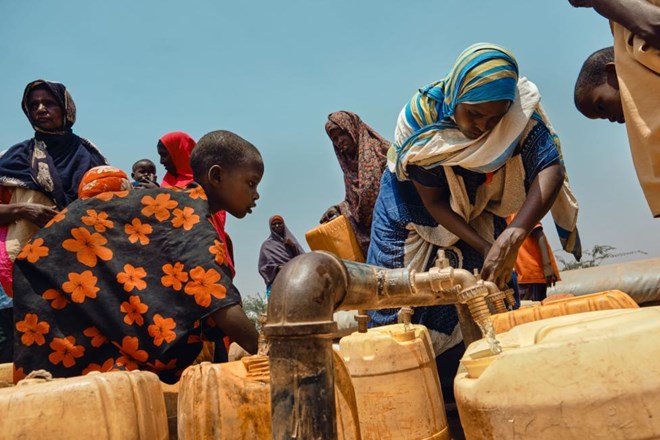
Friday December 16, 2022

MOGADISHU (Xinhua) -- Somalia has appealed to the international community to sustain funding for the drought response as 8.3 million people are expected to face a food crisis by mid-2023.
Abdirahman Abdishakur Warsame, the presidential envoy for Somalia's drought response, said more than 7 million people are still in need of food assistance and urged swift response from the donor community even as the country narrowly averted a full-blown famine for now.
"The situation is still critical. The failure of four consecutive rainy sessions has resulted in the worst drought in 40 years," Abdishakur said in a statement issued in the Somali capital of Mogadishu on Wednesday evening.
He, however, called for prioritizing recovery and resilience building to mitigate vulnerable communities from unpredictable weather patterns.
"The total humanitarian assistance provided to Somalia since the 2011 famine amounts to 5 billion U.S. dollars, yet the droughts recur, and we still face the risks of famine," said Abdishakur, denoting that saving lives is the priority, but long-term investments are also vital.
The statement came after the United Nations Office for the Coordination of Humanitarian Affairs (OCHA) said on Monday that famine had been avoided because host communities and relief teams had helped those in most need.
The latest report by the UN-backed Integrated Food Security Phase Classification (IPC), which classifies levels of severity from one to five, with five representing a state of "catastrophe/famine," said food insecurity in Somalia remains "catastrophic."
Alongside the severe drought, constraints in the global supply chain that resulted from the conflict in Ukraine have also contributed to food scarcity and price surges in Somalia, the special envoy said.
"I urge the international community to increase support for the drought response. I also ask development partners and humanitarian agencies to work jointly together on resilience efforts alongside emergency response," Abdishakur added.